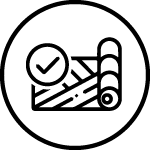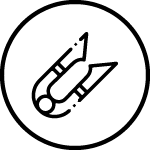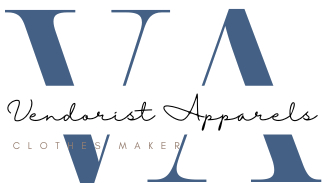Find a Wide Range of Premium Options with
Private Label Clothing Manufacturer
Private label apparel has gained popularity among entrepreneurs and enterprises seeking to establish their own distinctive brand in the always changing fashion sector. This guide will go over the advantages, best practices, and advice for choosing private label clothing manufacturers.
Rather of being merely imprinted, woven tags, also known as woven labels, are labels that are weaved into the fabric or garment. They serve to distinguish clothing with a certain branding or emblem, indicating which brand is selling the item.
Transfer of Heat One of the greatest alternatives to employing a large number of printed or woven labels is to use printed labels. Not only do these serve as warning labels and different clothing care recommendations, but they also show the garment’s size in terms of small, medium, large, or extra large measurements.
The most popular kind of flexible printed labels on the market are screen-printed labels. Throughout the development process, they make use of fundamental design concepts. The clothing is exposed to these screens, which are loaded with pertinent printing elements, allowing the clothing to be taken in and…
Labels that are printed using sublimation are a sort of printed label that is utilized for the purpose of displaying warning messages and instructions, as well as for the purpose of identifying clothing products.
The Satin Care Labels are developed to ensure that clients are able to have a clear picture of the information regarding the material of the clothing product in addition to the fundamental washing instructions…
Tyvek labels are a specialized kind of labels that are utilized on a variety of high-end clothing products that often have a longer lifespan than other types of labels. It is common practice to begin by weaving these into the fabrics,…
What is Private Label Clothing?
Clothes manufactured by one company , labelled and sold by another is known as private label clothing. With this strategy, companies may offer premium goods without having to make significant investments in production and design.
Benefits of Private Label Clothing
- Brand Control: You have the freedom to create your own brand identity.
- Higher Profit Margins: By eliminating middlemen, you can enjoy better profit margins.
- Unique Offerings: Stand out from the competition with exclusive designs.
- Flexibility: Adapt to trends quickly without being tied to a single manufacturer.
Finding the Right Private Label Apparel Manufacturer
Choosing the right manufacturer is crucial for your success. Here’s what to consider:
1. Quality of Products
- Material Selection: Ensure that the manufacturer uses high-quality fabrics.
- Manufacturing Standards: Look for certifications that guarantee ethical practices.
2. Production Capacity
- Scalability: Choose a manufacturer that can grow with your business.
- Lead Times: Understand their production timelines to avoid delays.
3. Customization Options
- Design Assistance: Some manufacturers offer design services to help you create unique pieces.
- Labeling and Tags: Ensure they can provide custom labels and tags.
4. Communication and Support
- Responsiveness: A good manufacturer should be easy to communicate with.
- Customer Support: Look for companies that provide ongoing support throughout the process.
Top Private Label Clothing Manufacturers
Here are some of the most reputable private label apparels manufacturers in the industry:
- Saitama Sportswear: Known for their high-quality sportswear and excellent customer service. Learn more about Saitama Sportswear here.
- Vendorist Apparels: A trusted name in private label clothing, offering a wide range of products. Explore Vendorist Apparels.
Steps to Start Your Private Label Clothing Brand
Step 1: Define Your Niche
Understanding your target market is vital. Identify a niche that aligns with your interests and has a demand in the market.
Step 2: Design Your Collection
Work on creating a cohesive collection that reflects your brand identity. Consider hiring a designer if necessary.
Step 3: Partner with a Manufacturer
Once you’ve selected a manufacturer, initiate discussions around your designs, materials, and production timelines.
Step 4: Launch Your Brand
Create a marketing strategy that includes e-commerce platforms, social media, and influencer partnerships to promote your brand.

Fabric Selection
Your dedicated representative will initially help you select the best fabric for your product.

Cut & Sewing
Once the fabric is selected, it is sent for Cut & Sew processes to make sure that the quality of the product is not compromised at all.

Customization
At this step, all the changes you need in terms of printing, add-ons and changes are done effectively.

Labeling
Once your product is finalized, we make sure that every piece has your label before it is sent to the packaging department

Packaging
The final product is ironed, folded with care and packed in the baggage of your choice to give it a premium look

Shipment
Once the order is packed and ready, it is sent for shipment to your location with minimum shipping time.



